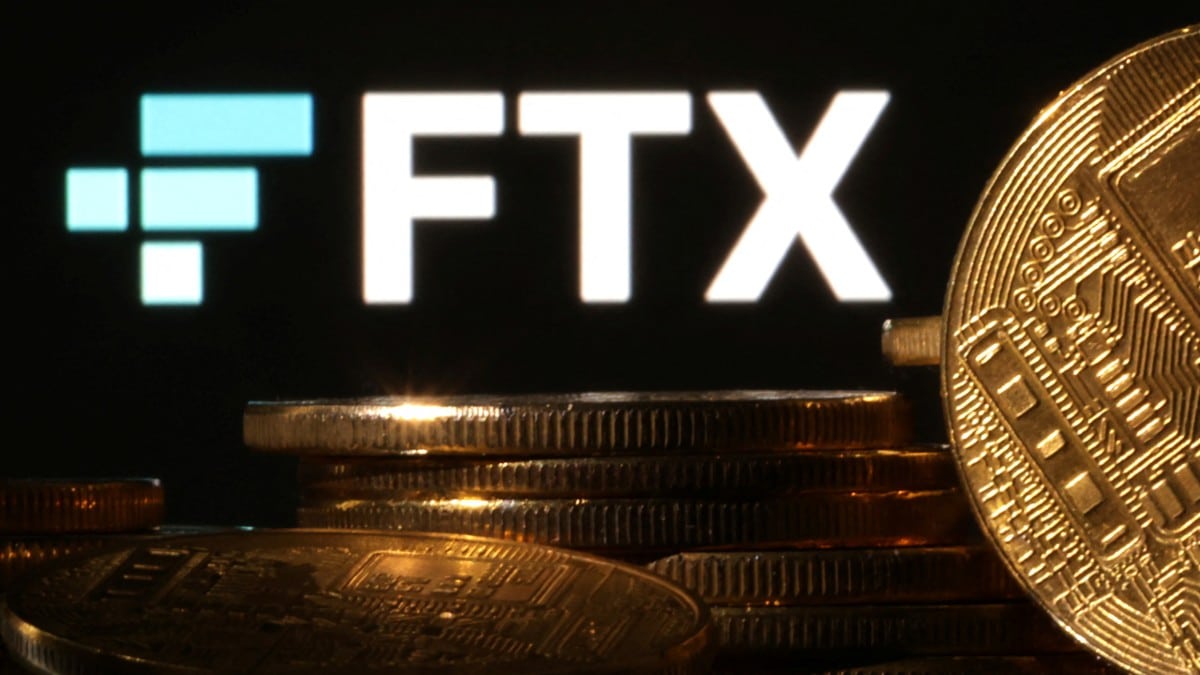Regulation
Former FTX Executives Singh and Wang Sentencing Dates Set

Ex-FTX executives Nishad Singh and Gary Wang, who entered guilty pleas for fraud charges and helped the prosecution against their former colleague Sam Bankman-Fried, are set to receive their sentences in the fall.
Ex FTX Executives Singh and Wang Sentencing Dates
Nishad Singh, the former Director of Engineering at FTX, and Gary Wang, the former CTO, are both currently in the process of awaiting their sentencing in connection with the criminal case that stems from the FTX crypto exchange’s demise.
Singh is expected to be sentenced on the 30th of October, 2024 while on the other hand Wang is expected to be sentenced on the 20th of November, 2024 before the District Court for the Southern District of New York.
They entered their guilty pleas following the exchange’s downfall in the last month of 2022. Singh and Wang thus took the stand against Bankman-Fried, the co-founder, and former chief executive of FTX to testify that they knew about the mishandling of customers’ funds and other fraudulent practices at the exchange. Their evidence has been instrumental in the case put up by the prosecution against Bankman-Fried.
Details of the Charges and Testimonies
Nishad Singh entered a guilty plea to six criminal counts, including fraud and conspiracy. Singh took the stand during Bankman-Fried’s trial in October and said he had found an $8bn gap in FTX’s books around September 2022, which had been spent on real estate and other risky trades, all of which were funded by customers’ deposits.
Singh also testified to writing systems that directed the FTX customer funds to Alameda’s bank accounts and developing systems that favored Alameda over other customers.
Gary Wang who is facing four charges including the conspiracy to commit wire fraud and securities fraud also gave evidence against the defendants. He revealed that he assisted in creating some parts of the FTX exchange website and was able to present a piece of code that provided an exaggerated picture of the FTX ‘public insurance fund’ which was meant to lessen the investors’ worries but was just a number generated at random and did not in any way depict the actual liquidity that was available. Wang’s cooperation with the FBI was motivated by the need to make the right decision and to avoid going to jail.
Other Executives and Further Implications
Another ex-FTX executive, Ryan Salame, received 7.5 years in prison for campaign finance charges and never accused Bankman-Fried. Caroline Ellison the ex CEO of Alameda Research also entered a guilty plea for seven charges though her sentencing date is not yet set.
The legal consequences of FTX’s downfall have been far-reaching for the parties involved. The legal proceedings that are still ongoing have revealed the extent of the fraud and the massive embezzlement of clients’ funds that led to the exchange’s collapse.
Bankman-Fried’s Family Accused of Illicit Political Donations
At the same time, new accusations have appeared concerning Sam Bankman-Fried’s family in a $100 million unlawful political contribution. The emails obtained by The Wall Street Journal show that Bankman-Fried’s parents Joseph Bankman and Barbra Fried together with his brother Gabriel Bankman-Fried were instrumental in the management and direction of these contributions, which were allegedly financed by the FTX client funds that were embezzled.
Prosecutors argue that these contributions were part of a larger influence operation in the run-up to the 2022 elections. Stanford University law professor Joe Bankman is said to have offered guidance on financial planning for political contributions, while Barbara Fried is alleged to have directed funds to progressive causes as a director of a non-profit organization. Bankman-Fried is alleged to have directed funds towards the fight against the Covid-19 pandemic.
Former FTX executives Ryan Salame and Nishad Singh are also linked to the fraudulent straw-donor scheme to funnel the money to Republicans and Democrats. However, a representative of Joe Bankman has dismissed the allegations of his participation in any campaign finance irregularities.
Read Also: Bitcoin: Beyond Germany, 190K BTC Chinese Seizure Is Also A Threat
The presented content may include the personal opinion of the author and is subject to market condition. Do your market research before investing in cryptocurrencies. The author or the publication does not hold any responsibility for your personal financial loss.
Regulation
USDC Issuer Circle Set To File IPO In April, Here’s All

USDC issuer Circle is reportedly set to file its initial public offering (IPO) in April as part of the firm’s plans to finally go public. The stablecoin issuer is allegedly already working with top financial institutions to achieve this move.
Circle To File IPO In Late April
According to a Fortune report, Circle is looking to file its IPO in late April, although the listing period remains uncertain. The report noted that when a company files to go public, its shares usually begin trading four weeks later, indicating that the listing could occur in May. However, there is also a scenario where the IPO process could drag on for months.
The stablecoin issuer is reportedly working with investment banks JPMorgan Chase and Citi to achieve its long-anticipated IPO. The firm had previously tried to go public in 2021 under a SPAC arrangement with a shell company.
The US SEC failed to sign off on this arrangement back then, and the company eventually scrapped these IPO plans by the end of 2022 when the crypto exchange FTX collapsed and the broader crypto market experienced a downturn.
Revelation about Circle’s IPO plans comes just days after the stablecoin issuer partnered with NYSE’s parent company to explore USDC’s use in traditional finance (TradFi). Meanwhile, the USDC stablecoin recently launched in Japan following approval from the country’s regulator. Notably, USDC is the first and only global dollar stablecoin approved under Japan’s stablecoin framework.
An Easier Path Now For The Stablecoin Issuer
Circle will likely face less resistance for its IPO plans under the current SEC administration. Under acting Chair Mark Uyeda, the Commission has shown its willingness to work hand in hand with crypto firms, which was missing under Gary Gensler’s administration.
US SEC Chair nominee Paul Atkins has also shown his willingness to change the approach that Gensler’s administration adopted towards crypto firms. During his nomination hearing, the SEC Chair nominee promised to prioritize providing regulatory clarity for the industry.
Circle’s IPO listing would be the biggest since the top crypto exchange Coinbase went public in 2021. Interestingly, Coinbase owns an equity stake in the crypto firm.
The firm’s USDC is currently the second-largest stablecoin by market cap, only behind Tether’s USDT. The stablecoin industry is heating up as more financial institutions look to develop their own stablecoin.
Donald Trump’s World Liberty Financial recently revealed plans to launch its USD1 stablecoin, while asset manager Fidelity is also considering doing so.
Disclaimer: The presented content may include the personal opinion of the author and is subject to market condition. Do your market research before investing in cryptocurrencies. The author or the publication does not hold any responsibility for your personal financial loss.
Regulation
Japan Set To Classify Cryptocurrencies As Financial Products, Here’s All

Cryptocurrency investors in Japan are bracing for impact following a plan to reclassify digital assets as financial products. While the plan has elicited excitement from cryptocurrency enthusiasts in the Far East, the ambitious plan will have to scale several legislative hurdles.
Japan Targets Reclassification Of Cryptocurrencies As Financial Products
According to a report by Nikkei, Japan’s Financial Services Agency (FSA) is inching toward classifying cryptocurrencies as financial products. Per the report, the FSA intends to achieve the reclassification via an amendment to the Financial Instruments and Exchange Act.
Currently, digital assets in Japan are considered crypto assets conferred with property rights and seen as payment means. Under the FSA’s plans, cryptocurrencies in Japan will be treated as financial products in the same manner as traditional financial products.
The FSA says it will adopt a slow and steady approach toward the reclassification, carrying out “a private expert study group” to test the waters. If everything goes according to plan, the FSA will submit the amended bill to Parliament in early 2026.
The classification of cryptocurrencies as financial products will have far-reaching consequences for the local ecosystem. Experts say treating cryptocurrencies as financial products will bring Japan closer to a crypto ETF launch amid a changing regulatory landscape.
Furthermore, the move may lower current cryptocurrency taxation for local investors since existing capital market rules will apply to the asset class.
A Fresh Bill For Crypto Insider Trading Is Underway
Apart from the reclassification, the FSA disclosed plans for new legislation against insider trading. The move flows treating cryptocurrencies as financial products and will strengthen existing investor protection rules.
“It is a direction to establish a new insider trading regulation that prohibits trading based on unpublished internal information,” said the FSA. “We will develop laws to prevent unfair transactions.”
However, Japan’s cryptocurrency scene is heating up to a boil, driven by local and international players. Last week, stablecoin issuer Circle secured approval from the FSA for USDC with top exchanges set to list the stablecoin.
Japan’s Metaplanet has tapped Eric Trump to join its Strategic Board of Advisors as it continues to load up Bitcoin.
Disclaimer: The presented content may include the personal opinion of the author and is subject to market condition. Do your market research before investing in cryptocurrencies. The author or the publication does not hold any responsibility for your personal financial loss.
Regulation
Kentucky Governor Signs Off On ‘Bitcoin Rights’ Bill, Strengthening Crypto Protections


In what is being dubbed a major development in the crypto regulation space, the Governor of the US state of Kentucky, Andy Beshear, has signed the ‘Bitcoin Rights’ bill into law. The law promises to safeguard protections for Bitcoin (BTC) users.
Bitcoin Rights Bill Comes Into Effect
Crypto regulations continue to evolve under pro-crypto US President Donald Trump’s administration. In the latest development, Kentucky has become the newest state to enshrine protections for digital asset users.
In an X post published on March 24, crypto advocacy group Satoshi Action Fund announced that Governor Beshear had signed the much-anticipated Bitcoin Rights bill into law. The post stated:
The right to self-custody, run a node, and use of digital assets is now protected for millions of Americans without fear of discrimination.
The bill was first introduced to the Kentucky House by Rep. Adam Bowling on February 19. According to the bill’s description, it seeks to safeguard users’ rights to use digital assets and self-custody wallets. Additionally, it aims to prohibit local zoning changes that discriminate against crypto mining operations.
The legislation outlines guidelines for running a digital asset node and excludes digital asset mining from money transmitter license requirements. It also clarifies that crypto mining or staking is not considered an offer or sale of securities.
On February 28, the bill passed Kentucky’s House of Representatives with a unanimous vote of all 91 representatives in favor. It later passed the Kentucky Senate on March 13, receiving backing from all 37 senators.
Kentucky’s proactive stance toward cryptocurrencies isn’t new. Earlier this year, the state became the 16th US state to introduce legislation seeking to create a Bitcoin strategic reserve.
Meanwhile, neighboring state Arizona is also joining the crypto movement. A recent X post by Bitcoin Laws revealed that Arizona’s House Rules Committee has passed two Bitcoin reserve bills — SB1373 and SB1025. These bills will now head to a full floor vote.
Renewed Optimism Under Trump Administration
Following Trump’s victory in the November presidential election, cryptocurrency regulations in the US are evolving rapidly, with many states introducing legislation aimed at strengthening their digital asset ecosystems and attracting crypto businesses.
Positive changes in crypto regulations are encouraging industry businesses to expand. For instance, leading crypto trading platform Coinbase recently announced plans to hire 1,000 employees in the US.
The Trump administration has also witnessed several lawsuits being dropped against major crypto entities, including Kraken, Coinbase, Gemini, and others. At press time, Bitcoin trades at $87,399, down 0.2% in the past 24 hours.

Featured Image from Unsplash.com, chart from TradingView.com

Editorial Process for bitcoinist is centered on delivering thoroughly researched, accurate, and unbiased content. We uphold strict sourcing standards, and each page undergoes diligent review by our team of top technology experts and seasoned editors. This process ensures the integrity, relevance, and value of our content for our readers.
-

 Altcoin23 hours ago
Altcoin23 hours agoCardano Price Eyes Massive Pump In May Following Cyclical Patern From 2024
-

 Market19 hours ago
Market19 hours agoBitcoin Bears Tighten Grip—Where’s the Next Support?
-

 Market18 hours ago
Market18 hours agoEthereum Price Weakens—Can Bulls Prevent a Major Breakdown?
-

 Ethereum15 hours ago
Ethereum15 hours agoEthereum Is ‘Completely Dead’ As An Investment: Hedge Fund
-

 Market8 hours ago
Market8 hours agoBitcoin Mining Faces Tariff Challenges as Hashrate Hits New ATH
-

 Market14 hours ago
Market14 hours agoThis Is How Dogecoin Price Reacted To Elon Musk’s Comment
-

 Regulation8 hours ago
Regulation8 hours agoUSDC Issuer Circle Set To File IPO In April, Here’s All
-

 Bitcoin14 hours ago
Bitcoin14 hours agoUS Macroeconomic Indicators This Week: NFP, JOLTS, & More





















✓ Share: